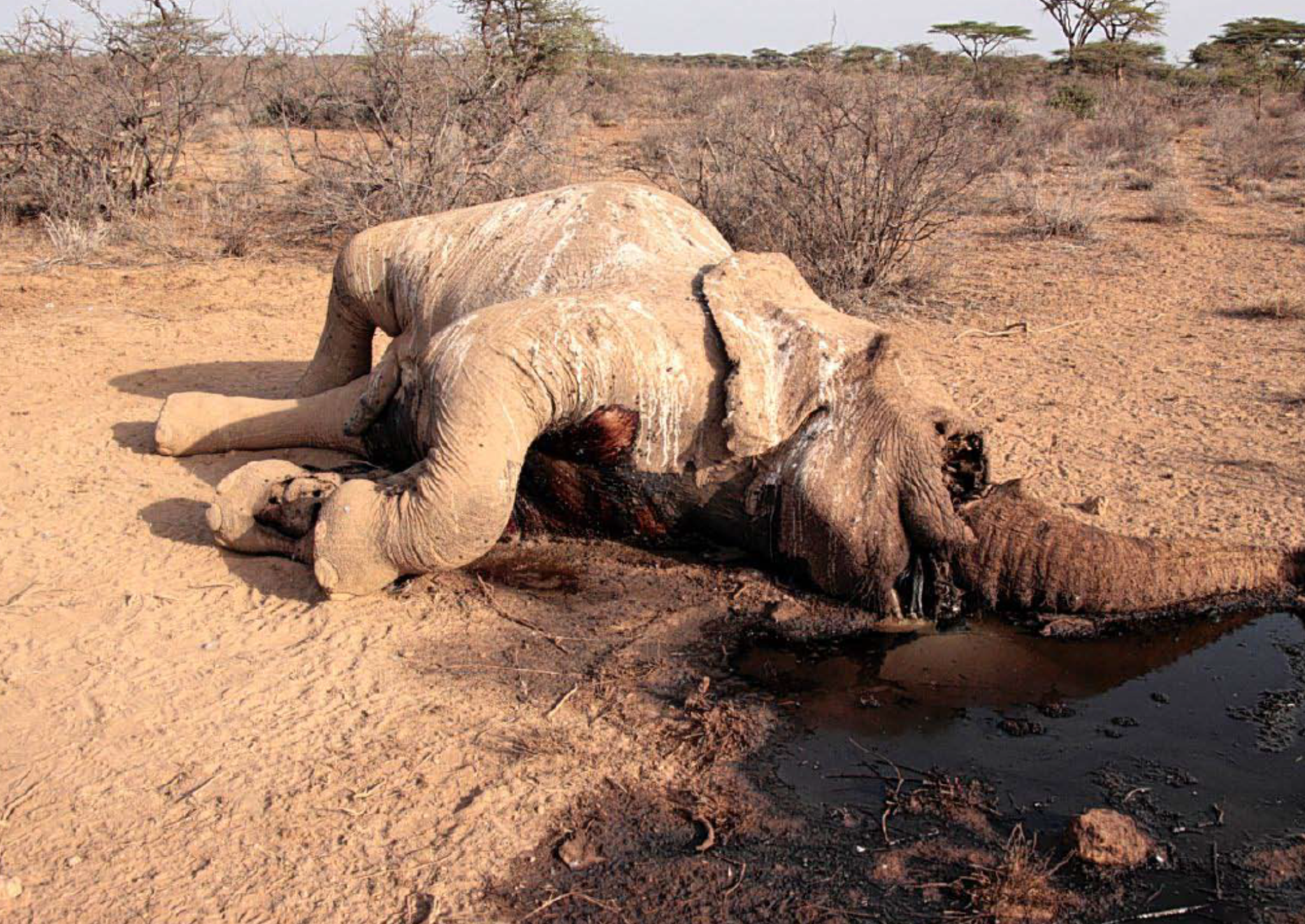John Sumokwo was released from prison in Kenya two months ago, after serving a one-year sentence. He has killed, he admits, more than 70 elephants. He is not a member of a terrorist organisation, just an ordinary Kenyan man from a poor area.
The tusks he and his gang collected were sold on for £80 a kilo, meaning each dead elephant fetched around £10,000. By the time those tusks arrived in China, they were worth more like £250,000 to ivory buyers there.
It is this profit margin that has turned Africa’s elephants into “white gold”, and attracted the attention of its terrorist organisations. However, compared to the slaughter executed by militant groups on an industrial scale, Sumokwo’s methods seem primitive.
“We killed them with spears. They were extremely sharp. I would always have two spears because if you did not kill the elephant with the first one he would try to kill me,” he said, in an interview with the Daily Mirror.
“Elephants are not easy. If they see you they can run after you and kill you. I was chased several times, but I got more experience.
“I knew exactly where to put the spear. It has to go in near the heart, and then the elephant dies immediately. I would climb up a tree and I would wait for them to come to that area to graze. I studied their movements, so I knew exactly where they went.
“The more I killed, the longer it would take to get the next one because the elephants would remember where I hid and go a different way.
“As they approached, other men in my gang would push the animals and kick them, so they came in my direction.”
So effective were Sumokwo and his gang that they slaughtered an estimated one in seven of the elephants in the Lake Kamnarok Game Reserve, not far from the Ugandan border.
“I remember the way the elephants scream when they die,” he said. “When I killed the elephants, the others would shout. They were extremely distressed.
“They would run around looking for ways of defending the one I had attacked. I remember one young calf saw me kill her mum.
“She ran off for protection from other animals. My attacks were so frequent that the elephants could not mate and have calves. There were not enough male bull elephants left.
“To me, this was just business – I didn’t think about it any other way. The buyer gave me money and then sold it off to the big syndicates in Mombasa.”
The demise of elephants in such a manner is just one of the items on the agenda when delegates of more than 50 countries meet in London next week for a summit on the illegal wildlife trade.
Tigers, rhino, leopards and sharks are all in dire situations, fuelled by misguided beliefs in the medicinal properties of their body parts, their aesthetic values or their status as a delicacy for special occasions in prosperous Chinese society.
When the beasts that roam the back gardens of the world’s poorest people are transformed into multimillion-pound prizes by economic coincidence, it is hardly surprising they are struggling to survive.
The Independent is campaigning to ensure the summit on 12 and 13 February reaches meaningful decisions to educate Asian consumers about the catastrophic impact of buying products made from wild animals, and to do more to uphold the existing international ban on the ivory trade.
Recently, Kenya passed new laws including life sentences for those found guilty of poaching.
Lenient sentences such as that received by John Sumokwo are hopefully a thing of the past. But conservationists say local communities in poaching hot spots must be helped to develop sustainable economies so they will not be encouraged to support the complex international forces behind poaching.
The International Fund for Animal Welfare is also asking British people to donate unwanted ivory items for destruction.
Sign our petition to stop the illegal killing of ivory.



Join our commenting forum
Join thought-provoking conversations, follow other Independent readers and see their replies